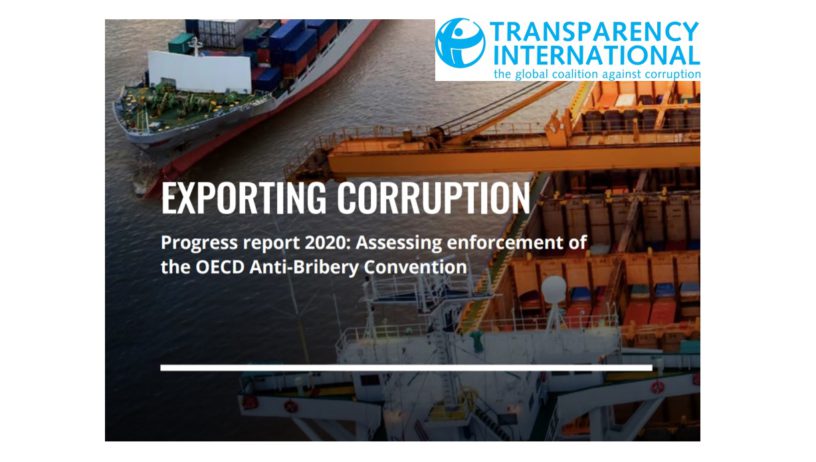By Dan Byrne for AMLi
NO EU country has achieved the highest standard in enforcing against foreign bribery, while nine have achieved the worst rating, according to a new report.
The Exporting Corruption Report 2020 – released in October by German NGO Transparency International, noted that nearly half the world’s exports come from countries that fail to punish foreign bribery properly.
EU countries have only ‘moderate enforcement,’ of anti-bribery laws at best, with nine considered to have ‘little or no’ enforcement of these laws at all. Those nine nations are Bulgaria, Hungary, Slovakia, Czechia, Poland, Finland, Luxembourg, Belgium and Ireland.
Meanwhile: the UK, Switzerland, the US and Israel are the only four nations considered to have ‘active enforcement’ of anti-bribery laws. Those four nations make up what is now a very small group of top-performers worldwide, compared to previous assessments, the report said.
Transparency International Chair Delia Ferreira Rubio said on the report’s release, “Money lost to foreign bribery wastes millions of dollars that could otherwise go to lifesaving services like health care.”
It is now over 21 years after the OECD anti-bribery convention was adopted in 1999.
The convention called for a global reduction in instances of political and corporate corruption in developing countries by introducing sanctions against the offering of bribes in international business transactions.
Tying acts of bribery in with the wider challenge of money laundering, the report claims that no country is immune from exporting foreign bribery from within their borders.
In the two years since Transparency International’s previous assessment, it has found the number of countries which ‘moderately enforce’ foreign bribery laws have more than doubled – four in 2018, nine in 2020.
It also found that several key economic powers worldwide that have not signed the OECD convention, such as China, India and Singapore, still fail to enforce anti-bribery laws.
Most countries now fail to publish acceptable enforcement information, and the lack of specific information about beneficial ownership – a common criticism from those looking to improve AML frameworks – is hindering enforcement worldwide.
The analysis scrutinised data from 47 countries and has led Transparency International to estimate that 83% of global exports to be affected by some kind of foreign bribery.
It recommends an immediate improvement in transparency of enforcement and beneficial ownership information, as well as an increase in international cooperation to fight foreign bribery – alongside the necessary structures to facilitate this.
Share this on:
Follow us on:








